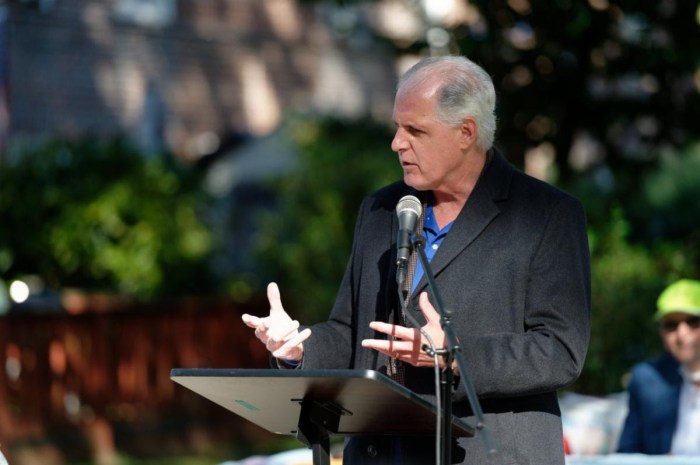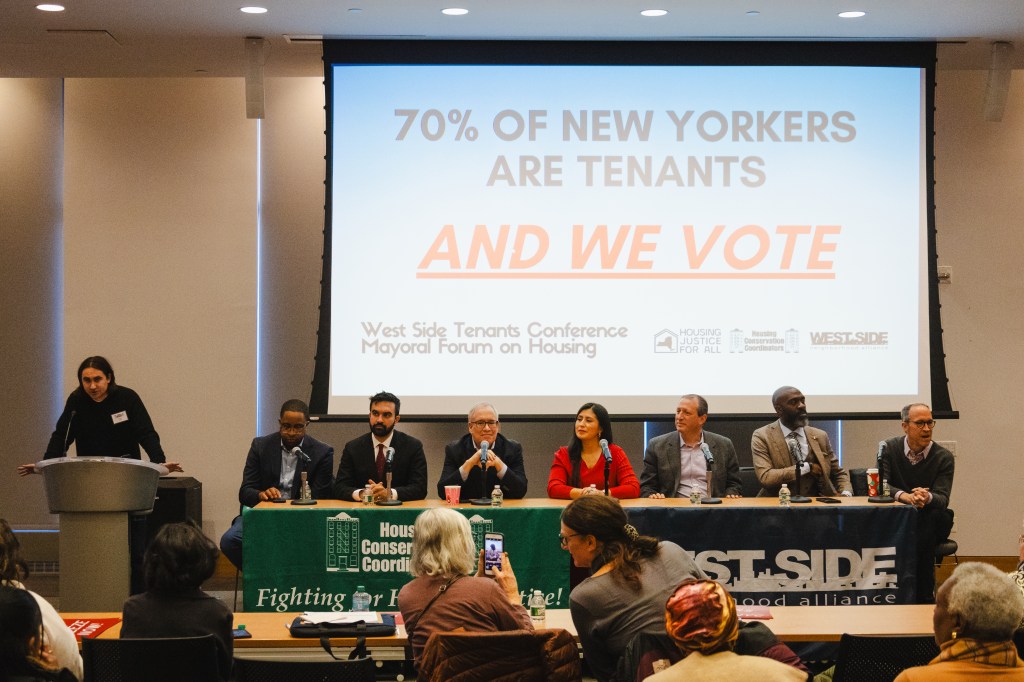By Courtney Dentch
The city has agreed to put up about $11 million to ensure the cleanup of the contaminated groundwater and soil at the old West Side Corp. factory site in Jamaica will move forward, state and city officials said Tuesday.
City Department of Environmental Protection Commissioner Christopher Ward said the agency would add $4.5 million to the $6.5 million it has already committed to the project, which could have been stalled waiting for money from the state Superfund, said DEP spokesman Geoffrey Ryan.
“We have been committed to getting the West Side Corp. cleaned up, and we were worried that the state didn’t have the funds to do so,” Ryan said. “By doing this, the DEP is ensuring that the process goes forward as planned.”
Although the city is now paying for it, the state Department of Environmental Conservation will continue to run the clean-up project, which is aimed at removing chemical contaminants, including gasoline additives and dry cleaning chemicals, that seeped into the underground water supply from the West Side Corp. factory. The factory was used to store industrial chemicals, such as perchloroethylene, known as PERC, and methyl tert-butyl ether, known as MTBE.
The cleanup could take 10 years, and the water will be not be added to the drinking supply until its quality is approved by the state Department of Health.
Ward announced the new funding at a meeting with U.S. Rep. Gregory Meeks (D-St. Albans), state Sen. Malcolm Smith (D-St. Albans), and City Councilman Leroy Comrie (D- St. Albans) Tuesday afternoon.
“Commissioner Ward said they would fund the cleanup of the site, which is great news for the community,” Comrie said.
State DEC Commissioner Erin Crotty also attended the meeting, Smith said.
“We were getting a little tired of hearing the city is doing this and the state is doing that,” he said. “We got a commitment from both the city and the state to work together cooperatively on this.”
The state DEC told a meeting of the citizen’s advisory committee for the Brooklyn-Queens Aquifer study last Thursday that it has tested a new method to clean the tainted groundwater and is moving forward with a design for the process, said Shive Mittal, project engineer with the DEC.
The agency had to use a new method after the first technology it tested earlier this year failed to completely remove the contaminants, Mittal said.
To better remove the chemicals, the DEC has tested and approved a thermal injection technology, which would use an electrical current to heat the ground and evaporate the toxins, Mittal said. The design is underway, and a finalized plan should be completed next spring, he said.
“This is a proven technology that has been used on similar sites in the nation,” Mittal said.
But residents are tired of waiting for the cleanup to begin, said Irving Hicks, one of the committee members.
“When you were here a couple of months ago you basically said the same thing,” he said. “This is three years we’ve been talking about this and nothing’s been done. I don’t feel that this is happening.”
In addition to the new funds the DEP has committed to the cleanup, the agency is going ahead with its contribution to the project. The DEP has installed a series of monitor wells, which will be used to check that the toxic plume underneath the site is not spreading, said Donald Cohen, project coordinator with DEP consultant Malcolm Pirnie Inc.
“The wells ring the area to make sure we’re controlling the plume,” he said.
The committee also discussed forming a scientific review panel, a group of scientists and engineers to be the committee’s on-call team to confirm, explain or refute the DEP’s findings.
The panel will include about eight experts in fields such as chemistry, chemical and civil engineering, hydrogeology, public health and risk assessment. The committee has reviewed about 25 resumes, and was expected to have some of the experts on hand for its October meeting.
Reach reporter Courtney Dentch by e-mail at TimesLedger@aol.com, or by phone at 229-0300, Ext. 138.


































